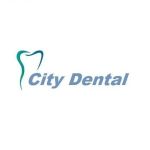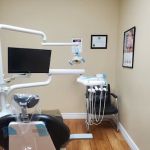Maximizing Your Health Coverage: How to Combine Dental Insurance with Other Health Plans
When I first started thinking about my health insurance, I quickly realized that combining dental coverage with my health plan was a bit more complex than I initially thought. It was overwhelming at first to figure out how to optimize my benefits and ensure that I wasn’t paying too much for services I didn’t need. Over time, I learned how dental and medical insurance can work together to create a more comprehensive plan, ultimately helping me save money while receiving the care I needed.
In this article, I’m going to walk you through how to combine dental insurance with other health plans. I’ll share my experiences and offer tips on how to make the most out of your benefits, based on my own trial and error with different insurance setups. Whether you're new to navigating health plans or looking to optimize your current coverage, this guide will provide you with the practical steps to ensure that your dental and medical benefits complement each other, maximizing both your savings and your coverage.
1. Understanding How Dental Insurance Works with Other Health Plans
Before diving into how to combine dental insurance with other health plans, it's important to understand the basics of how dental coverage works separately. Dental insurance typically operates differently than medical insurance. For example, dental plans often focus on preventative care (like cleanings and checkups), while medical plans cover more comprehensive healthcare needs like surgeries or hospital stays.
One thing I quickly realized was that many people don’t know that dental insurance can often be treated as a separate entity, even if it's part of your larger health plan. If you're lucky, your dental insurance might be bundled with your medical insurance, but in many cases, you may need to deal with two different plans. As I went through this process, I realized that understanding how both of these plans interact was crucial in maximizing my healthcare benefits.
Dental insurance typically offers a fixed amount for services, while medical insurance has more comprehensive coverage, including hospitalization, outpatient care, and more. However, dental treatments are often excluded from medical insurance plans, making it necessary to have both separate dental and medical plans. If you’re combining these two types of insurance, it’s essential to understand the level of coverage and the specifics of your dental and medical insurance policies.
2. How Dental Insurance Can Complement Health Insurance
When I first combined my dental insurance with my health plan, I noticed several ways that they could complement each other. The goal was to get the maximum benefits from both policies without overpaying. Here's how dental insurance can enhance the coverage provided by your medical plan:
2.1. Preventive Care and Cost Savings
One of the most significant benefits of combining dental insurance with your health plan is the cost savings on preventive care. For example, regular dental checkups and cleanings can help prevent major medical issues, such as gum disease, that may require more expensive treatments or hospitalization in the future. My own experience was eye-opening in this regard: I was able to avoid expensive treatments later on by taking advantage of the preventative care that my dental plan covered. Dental plans often cover preventive care at little to no cost, which in turn can lower your overall healthcare costs by preventing more severe conditions that would require medical intervention.
2.2. Coverage for Dental Procedures Linked to Medical Needs
In some cases, dental insurance can also cover certain dental procedures that may be necessary for medical reasons. For example, if you need a dental procedure because of an underlying medical condition (like oral surgery due to a serious injury), your medical insurance might cover part of the cost. Additionally, certain medical procedures may require dental treatments—such as when a person undergoing chemotherapy needs help with their oral health. During my research, I found that combining both plans often made these scenarios more affordable, as the costs could be split between both policies.
2.3. Avoiding Coverage Gaps
Combining dental insurance with your medical plan can also help close any gaps in coverage. For example, medical insurance often doesn’t cover dental visits, particularly when it comes to basic dental care such as cleanings and checkups. By having a separate dental insurance plan, you can avoid these gaps and ensure that you’re fully covered for both medical and dental care. I personally found that managing two plans, though a bit more complex, offered more comprehensive protection against unexpected healthcare costs.
3. How to Combine Dental Insurance with Other Health Plans
Now that we understand the benefits of combining dental and health insurance, let’s dive into how to make it happen. There are several steps you can take to effectively combine your dental insurance with other health plans:
3.1. Check for Existing Coverage
Start by reviewing your current health insurance plan to see if it already includes dental coverage. Some health plans, particularly employer-sponsored plans, offer dental insurance as part of their package. If your health plan already includes dental, it may be sufficient for your needs. However, if it doesn't, you may need to purchase a separate dental plan to cover your dental care costs. For example, my company’s health plan did not cover dental, so I added a separate dental plan to ensure that I could get the care I needed.
3.2. Choose Between Separate or Bundled Plans
Once you’ve determined whether or not your health plan covers dental, you’ll need to decide whether to opt for a separate dental insurance plan or to purchase a bundled plan. A bundled plan can be convenient as it combines both medical and dental coverage under a single policy, but in some cases, separate plans might give you more flexibility. I ultimately chose separate plans, as I found that my dental insurance offered more comprehensive benefits for specific dental care, like cleanings and fillings, that weren’t available under the bundled medical plan.
3.3. Understand Coordination of Benefits
When you have both dental and medical insurance, it’s important to understand how the coordination of benefits works. This refers to how the two insurance plans work together to cover your healthcare costs. Typically, one plan is considered your primary plan, and the other is secondary. The primary plan will pay for your medical or dental expenses first, and the secondary plan may help cover any remaining costs. Understanding the coordination of benefits can help you avoid overpaying or missing out on benefits. I took the time to contact both my health and dental insurance providers to understand how they would coordinate and ensure that I was fully covered for all procedures.
4. What to Do If You’re Covered by Multiple Plans
There are situations where you might be covered by multiple health plans, such as through a spouse’s plan or a government program like Medicare. In these cases, understanding how the two plans coordinate is crucial. In my case, when my spouse’s employer offered a dental plan, we had to carefully decide how to integrate both our plans without duplicating benefits or leaving any gaps in coverage.
If you’re covered by multiple plans, it’s essential to speak with both insurance providers to clarify the rules of coordination and ensure that both plans are utilized to their full potential. Keep in mind that not all plans will allow you to coordinate benefits, so it’s important to check for any restrictions that may apply. In my case, one insurance plan was primary, while the other served as secondary coverage, which helped me maximize my benefits.
5. Consulting with Experts to Maximize Your Coverage
Sometimes, navigating the complexities of dental and health insurance coordination can be challenging. That’s why I recommend consulting with insurance brokers or representatives who can guide you through the process. They can provide personalized advice on how to combine your dental and health plans effectively, ensuring that you’re making the most of your available benefits.
If you're unsure about how to combine your dental and health insurance, consider reaching out to professionals who can help you review your options. You may also want to visit websites like 【Dentistry Toothtruth】 to explore additional resources and recommendations for the best dental coverage options that fit your specific needs.







 Sweet City Smiles5.0 (513 review)
Sweet City Smiles5.0 (513 review) Hillside Family Dentistry4.0 (108 review)
Hillside Family Dentistry4.0 (108 review) Jae Chae DMD4.0 (26 review)
Jae Chae DMD4.0 (26 review) Eastern Dental4.0 (551 review)
Eastern Dental4.0 (551 review) Densley Dental4.0 (260 review)
Densley Dental4.0 (260 review) Arlington Dental Group and Orthodontics4.0 (210 review)
Arlington Dental Group and Orthodontics4.0 (210 review) The Importance of Oral Health Education During Pregnancy for a Healthy Pregnancy
The Importance of Oral Health Education During Pregnancy for a Healthy Pregnancy Best Tips for Brushing Your Teeth Properly for Healthy Gums: Essential Techniques for Oral Health
Best Tips for Brushing Your Teeth Properly for Healthy Gums: Essential Techniques for Oral Health Why Skipping Dental Checkups Can Lead to Bigger Oral Health Problems
Why Skipping Dental Checkups Can Lead to Bigger Oral Health Problems Advantages of Porcelain Dental Restorations
Advantages of Porcelain Dental Restorations How Can Diabetes Cause Tooth and Gum Problems? Preventing and Managing Oral Health Issues
How Can Diabetes Cause Tooth and Gum Problems? Preventing and Managing Oral Health Issues Healthy Habits for Promoting Good Oral Health and Hygiene: Tips for a Healthy Smile
Healthy Habits for Promoting Good Oral Health and Hygiene: Tips for a Healthy Smile